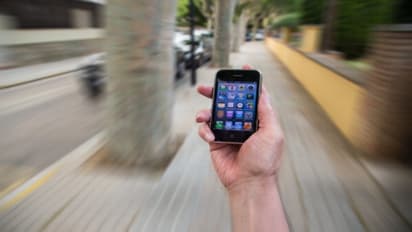FOMO, anxiety, or necessity? Experts reveal the hidden psychology of two-phone carriers

Synopsis
These "dual-smartphone users" (DSUs) juggle between two devices, sometimes even holding one in each hand, raising questions about their lifestyle and personality.
In an age where smartphones are indispensable companions, a curious trend is emerging—individuals carrying not one, but two smartphones wherever they go. These "dual-smartphone users" (DSUs) juggle between two devices, sometimes even holding one in each hand, raising questions about their lifestyle and personality.
For some, the logic is simple; one phone for work and another for personal use. Yet, according to psychologists, this behavior might hint at deeper psychological traits.
David Sheffield, a professor of psychology at the University of Derby, suggests a connection between carrying two smartphones and personality traits like anxiety or neuroticism. “If you are more neurotic, you might be using your phone more and may be more concerned about battery life, so two phones provide a safety net,” Sheffield explained.
The numbers are staggering—recent research reveals that the average Brit spends over four hours a day glued to their smartphone, equating to nearly a quarter of their waking hours. Whether having two devices amplifies this screen time remains uncertain.
Dr. Zaheer Hussain, a senior psychology lecturer at Nottingham Trent University, believes the phenomenon could also stem from "FOMO," or the fear of missing out. “People do not want to miss out on news and notifications,” Dr. Hussain said. He noted that relentless content streams on social media might prompt users to scroll mindlessly or spread apps across two devices due to storage constraints.
For professionals, dual smartphones often serve a functional purpose—keeping work and personal lives distinct. “Companies might be increasingly likely to provide phones for their workers,” said Dr. Kostadin Kushlev from Georgetown University. This separation can make it easier to switch off work obligations at the end of the day.
However, Maxi Heitmayer, an expert on human-computer interactions at the London School of Economics, warns of potential drawbacks. “Many people seem to feel an expectation of being reachable all the time, both professionally and privately,” Heitmayer noted. “This then leads to the unfortunate scenario where there are two devices competing for attention.”
For others, two phones might serve as a backup, especially for those anxious about running out of battery. Yet, this behavior could signal problematic smartphone addiction. Professor Sheffield admitted that dual-smartphone use and its links to addiction are under-researched areas, but the trend itself is gaining momentum.
Social apps like WhatsApp and Instagram now allow multiple devices to log into a single account, further normalizing the dual-phone lifestyle. Others might simply want the varied features of different models at their fingertips—whether an iPhone, Google Pixel, or Samsung Flip.
Interestingly, not everyone views this habit as a cause for concern. Dr. Mark Griffiths, a distinguished professor of behavioral addiction at Nottingham Trent University, downplayed fears of smartphone addiction.
“People are no more addicted to smartphones than alcoholics are addicted to bottles,” Griffiths argued. “It’s what people do on their smartphones that can be addictive, not the smartphone itself.”
Explore the latest Lifestyle News covering fashion, wellness, travel, Food and Recipes, and more. Stay updated with trending Health News, fitness tips, and expert insights to inspire your daily living. Discover personalized lifestyle trends that keep you stylish and informed. Download the Asianet News Official App from the Android Play Store and iPhone App Store for everything that adds value to your everyday life.